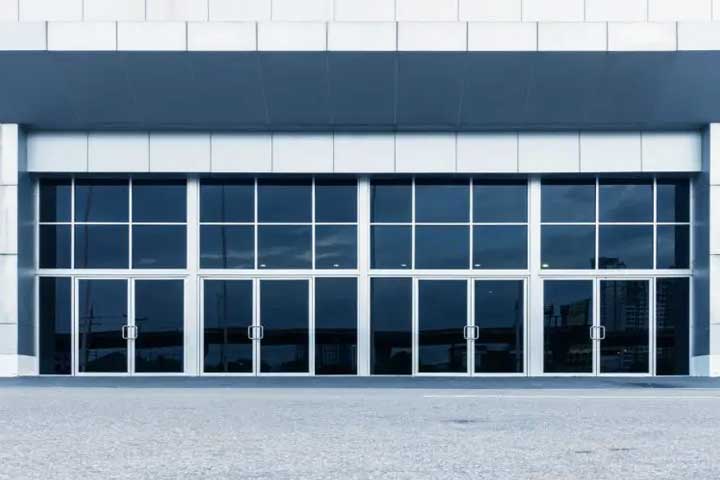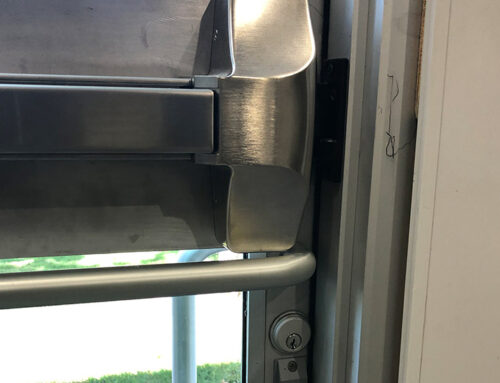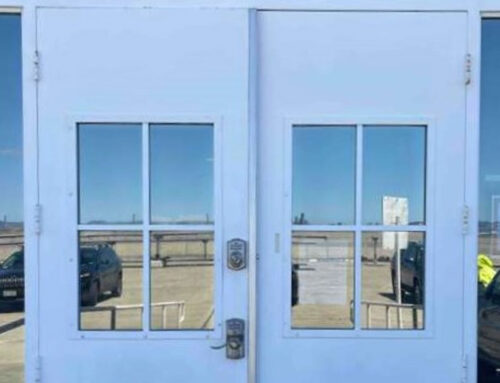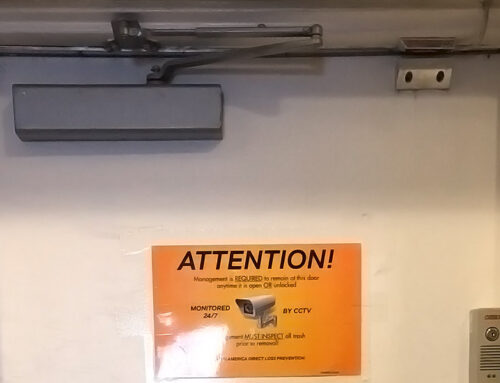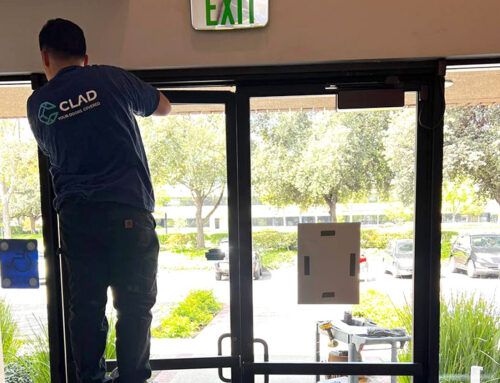When you hear the words “business security,” you may think about alarm systems, high-tech cameras, motion detectors, and other state-of-the-art equipment. However, did you know that those tools are just supplements to commercial door locks?
The doors in your business premises serve as the first deterrent to potential intruders in your property. These doors should be reinforced by commercial locks that are carefully selected to match the needs of your business.
Let’s take a closer look at some of the most common types of commercial locks being used by companies today.
Keyless Entry or Keypad Door Locks
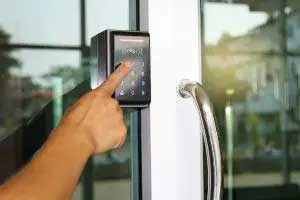 A keyless door lock requires a passcode in order to provide access to the building. What’s great about this lock is that it’s simple, easy to use, and you have better control of who can enter your work premises and when.
A keyless door lock requires a passcode in order to provide access to the building. What’s great about this lock is that it’s simple, easy to use, and you have better control of who can enter your work premises and when.
Most keyless entry locks can be programmed so you can schedule time restrictions in which your property may be accessed. Another benefit from these locks is you can keep track of who goes in and out of the building because the employee access codes and logging times are recorded. With this kind of information, you can prevent serious problems such as employee theft.
Multiple users can get access to the door lock without the need to give everyone a duplicate of the key. This saves you time and money from re-keying regularly. Aside from increasing key control in your commercial building, it reduces the chance of intruders gaining unauthorized access.
Another perk from these locks is, they can be used to implement security hierarchies for greater access control. Since most keypad door locks are completely keyless, it’s impossible to bump, pick, or bypass using traditional methods.
Many keypad door locks in the market these days also incorporate biometric lock features for added security. But for those keypad locks that do use key cylinders for backup, their added functionalities still make them a standard option for many businesses.
Electronic Door Locks
Electronic locks are locked and unlocked with the use of an electrical current, which may be used to operate a motor, solenoid, or an electromagnet. There are two types of electric locks: fail-safe or fail-secure. The primary difference between the two locks is the way their circuitry makes the lock work.
A fail-safe lock unlocks the door by closing the circuit and putting current to the strike. The opposite happens in a fail-safe lock—once the circuit is closed and power is applied to the lock, it will stay closed.
Magnetic Locks
This kind of commercial lock is often seen on doors without any functional levers or knobs. Imagine an interior glass door without any handle to pull or push it open for access. A magnet is usually placed at the top part of the door frame along with its compatible partner installed to the actual door. Similar to strike locks, electromagnetic locks are made with a fail-secure system design wherein the door will stay shut in case there is a power interruption.
Push Bar Door Locks
Also referred to as panic push bars, push bar door locks are locked and unlocked through a connected bar or handle. After the bar is pressed, the internal mechanism of the panic bar will retract the latch that keeps the door closed. The base plates have a pair of arms that rest on each side of the bar. With the help of these arms, the latch retractor can be engaged and activated, which then enables you to operate the commercial door.
Restricted Key System
A restricted key system limits the places where your key may be duplicated. It can only be copied to an authorized locksmith and is required to be signed off by an appointed individual. By using this high-security key system, you have peace of mind knowing your keys can never be copied at any local hardware store.
Ready to Make Your Business More Secure?
Commercial Locks and Doors proudly serves businesses large and small throughout the East Bay, including Livermore, Dublin, Fremont, Concord, and more.
Card Reader Locks
Card reader locks are commonly used by businesses because they make the process of locking and unlocking your door convenient. Aside from having a modern and upscale design, this type of digital door lock is weather- and vandal-resistant.
Most systems come installed with an alarm or LED light to indicate access. Additionally, these locks need swiping or touching in order to be opened.
Fingerprint Locks
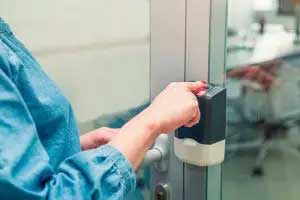 For those who don’t want the hassle of using keys or cards for access, a fingerprint lock is the best option. This type of lock is equipped with biometric technology that recognizes fingerprints and attempts to match it with the database of users allowed to access a room or building. A standard fingerprint lock can store up to 100 fingerprints and can be installed easily in a standard door with a thickness of around one to two inches.
For those who don’t want the hassle of using keys or cards for access, a fingerprint lock is the best option. This type of lock is equipped with biometric technology that recognizes fingerprints and attempts to match it with the database of users allowed to access a room or building. A standard fingerprint lock can store up to 100 fingerprints and can be installed easily in a standard door with a thickness of around one to two inches.
Cylindrical Lever Locks
A cylindrical lever lock is composed of different parts—some of which can also be found in other types of security locks. The main components of this lock include the cylinder, chassis, latch, inside and outside rose, and inside and outside levers. Like pin tumblers, most cylinders in this kind of lock are standard bored.
Mortise Locks
A mortise lock comes with a variety of key elements that work with each other to offer users a higher level of security. These locks usually include a strike plate, lock cylinder, lock body, through the spindle, and a handle. In addition to these standard parts, a mortise lock has additional functionalities such as hard collars, faceplates, a day and night switch, and rose plates.
Selecting Commercial Door Locks for Your Business
Don’t be fooled into thinking that a common door lock will always be suitable for your needs. Before deciding on a type of lock, you should consider your office size, as well as the traits and habits of the people in your property where it will be installed.
When handling a business, you need to have a clear understanding of how it operates so you can select commercial locks that are adequate for your unique needs. With a vast array of commercial door locks on the market right now, the above list is a good starting point. It will give you an idea of the choices you have and help you determine if they are a good fit for your business.

